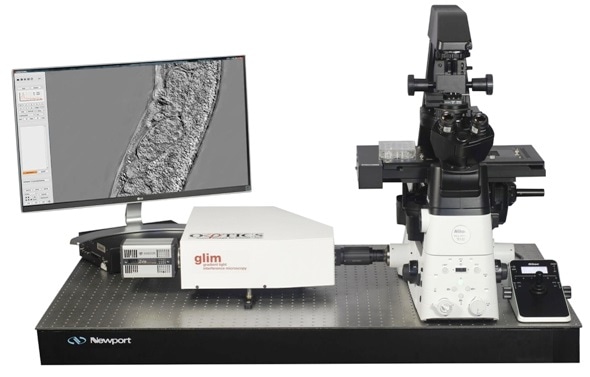AXT has recently been appointed the local distributor for Phi Optics, an innovative developer of Quantitative Phase Imaging (QPI) solutions for live cell and tissue microscopy. Phi Optics’ modular solutions have been designed as simple add-ons for existing inverted light microscopes giving them detailed analytical capabilities.

Phi Optics GLIM Gradient Light Interference Microscopy system for quantitative phase imaging (QPI).
The QPI systems from Phi Optics can be used to determine a host of properties of 2D and 3D specimens such as: Cell mass Cell volume Surface area Evolution of cells over time The systems are suitable for imaging live cells and tissues. They are non-invasive, label-free and require no sample preparation. They allow you to carry out live studies that vary in time from milliseconds to weeks so you can observe the behavior of your specimens as a direct response to drugs or other stimuli over time.
Phi Optics QPI system attaches to your existing inverted light microscope using the C-mount. As they use the same camera to acquire all data, they also offer seamless overlay with other microscopy channels such as fluorescence. This enables you to obtain a detailed understanding of your specimen’s behavior at a sub-cellular level.
Phi Optics currently offers two wide field imaging systems: GLIM – Gradient Light Interference Microscopy SLIM – Spatial Light Interference Microscopy Both exploit phase shifts of the light passing through your specimens which are influenced by changes in optical density of different cellular components and structures.
While both systems provide details analysis of cells, cell colonies or even tissues, GLIM also offers the ability to work with sample over 350 µm thick, which is of specific interest to researchers in areas such as embryology, spheroids and 3D cell cultures.
The Phi Optics QPI systems will join a host of other microscopy products suited to the life science sectors that AXT already supplies to the Australian and New Zealand markets.